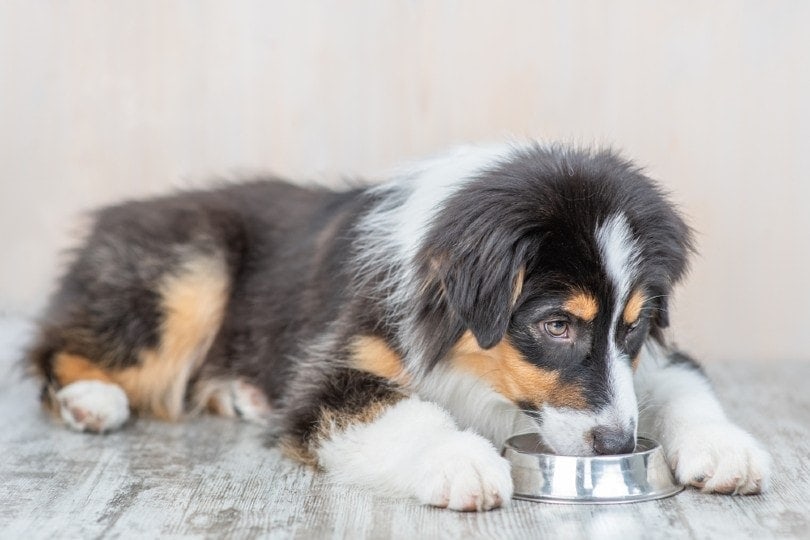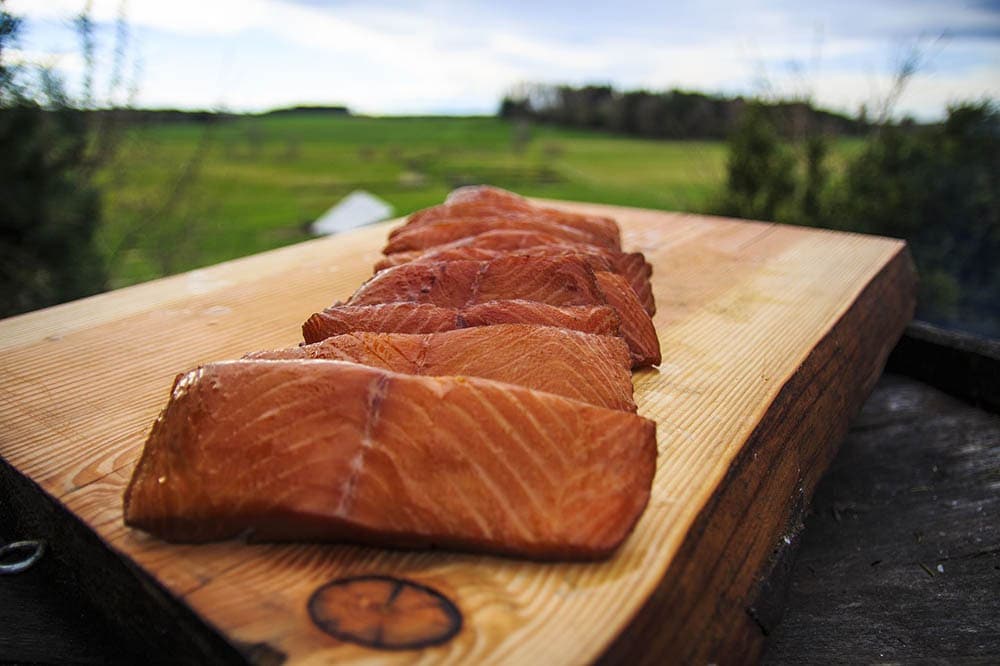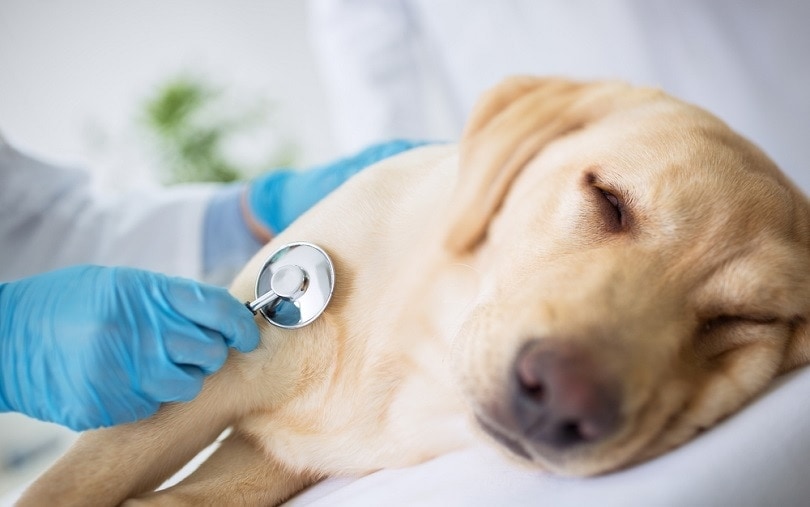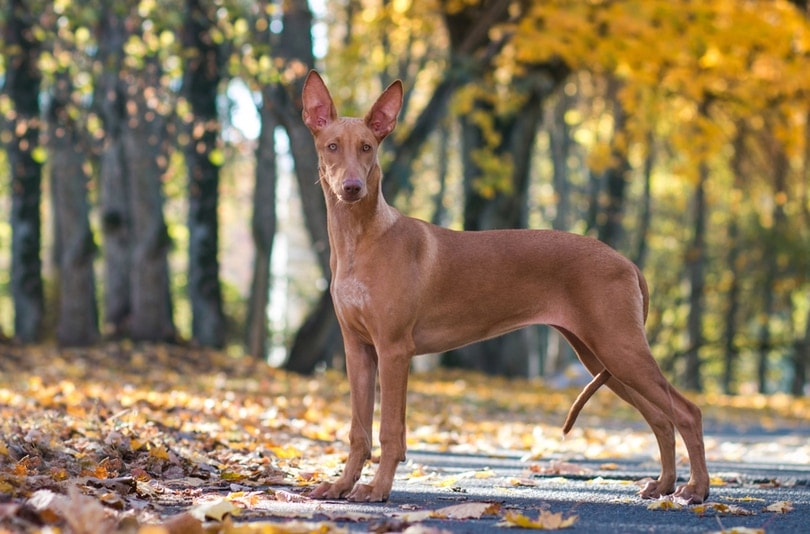Is Salmon Dog Food Good for Dogs? Vet-Approved Nutrition Facts
By Oliver Jones
Updated on

Dogs love to eat, and humans love to feed them. Their reaction to a forbidden food gives pet owners a sense of pleasure. As you feed them, you may often wonder if they are satisfied or bored with their diet.
You may be wondering if salmon is a good source of protein for your dog in its dog food. The answer is yes. In addition to rotating your dog’s diet for variety, salmon can be an excellent choice for dogs with food sensitivities.1
Is Salmon Dog Food Safe for Dogs?
Salmon is a nutritious protein that contains omega-3 for immune system support. The fatty acids can help reduce inflammation and improve the skin and coat. It contains essential vitamins and minerals for your pet to thrive.
If your pet has food allergies, salmon protein may help to improve their skin and coat. Dogs with food allergies typically have reactions to the protein in their diet. Chicken, beef, eggs, wheat, corn, milk, or soy can cause gastrointestinal issues, skin and coat issues, itchiness, and chronic foot and ear infections. Salmon is an unconventional protein source that is less likely to be of allergic concern.
- Is the food made with real salmon?
- Does it offer complete and balanced nutrition?
- Is the salmon responsibly sourced?
You can add salmon food as part of a rotational diet or replace your dog’s current dog food. Just be sure to transition your dog slowly to avoid any digestive upset.
Can I Feed Salmon to My Dog?

If you want to cook up some salmon as a topper for dog food or a snack for your dog, it can be a nice treat for them. Dogs can eat salmon that is thoroughly cooked and de-boned. Occasionally giving your dog a chunk of salmon from the grill will keep their body healthy and their taste buds intrigued.
Again, thoroughly cook salmon with no salt, pepper, oil, onions, or garlic. Be sure to remove all bones to prevent choking. Salmon bones can be brittle and get stuck in your pet’s intestines or stomach. If the grill is not handy, give your dog a piece of salmon that is baked, roasted, poached, or steamed.
Canned salmon is another alternative for your dog. Not only is it fully cooked, but the bones have softened, which eliminates problems with their stomach or intestines. To avoid issues with salt and oil, buy canned salmon soaked in water.
Fully cooked salmon skin for your pet to gnaw at will surely delight your little buddy. It provides the same healthy nutrients, but it contains a higher fat content than the rest of the salmon, so don’t overdo it. Salmon skin can be an occasional treat for your dog.
Dogs should not consume undercooked or raw salmon. It can be poisonous or even deadly. Salmon that is undercooked or raw contains parasites and bacteria that are harmful. Salmon that has not been cooked can lead to salmon poisoning disease (SPD).
In addition to raw salmon, your dog should not consume smoked salmon. The curing process for smoked salmon results in a dangerously high salt content for dogs.
Salmon Poisoning in Dogs

For centuries, wolves, foxes, and humans have consumed raw fish. Salmon contains a parasite known as Nanophyetus salmincola (NS). If the parasite is infected with Neorickettsia helminthoeca, it can cause salmon poisoning in your pet. Left untreated, salmon poisoning can be fatal to your canine.
The next time you are cooking on the grill, cook a piece of salmon for your furry friend. Never offer raw salmon to your dog.
Signs of Salmon Poisoning
The signs of salmon poisoning may not be present immediately. It can take a week for the signs to show. If your dog is unwell days after consuming salmon, it is important to tell your veterinarian. A quick diagnosis will aid your vet in getting your pet the immediate treatment needed.
Salmon poisoning can spread through your dog’s feces to other animals.
- Diarrhea
- Lack of appetite
- Rapid weight loss
- Vomiting
- Swollen lymph nodes
- Dehydration
- Fever
- Lethargy
If your pet is experiencing any of these signs, seek the advice of a veterinarian immediately. Early diagnosis of salmon poisoning is treated with medications. Once the antibiotics and antiparasitic drugs are started, the recovery can be quick.
Conclusion
If you want to change up your pet’s diet with a nutritious human food, a properly prepared piece of salmon is sure to satisfy your pet. It can benefit their heart, skin, and coat. Whether it is prepared on the grill or they are gnawing on the cooked skin of the salmon, it is a treat your canine is sure to love.
- See also: 10 Best Salmon Oils for Dogs
Featured Image Credit: Ermolaev Alexander, Shutterstock













